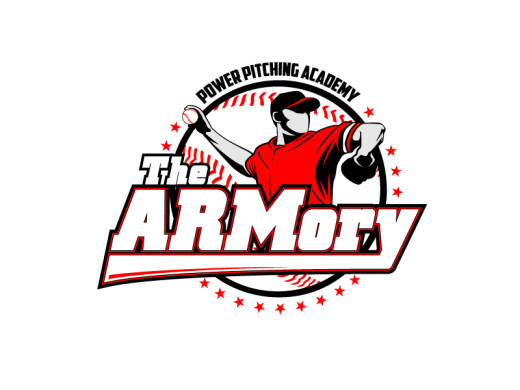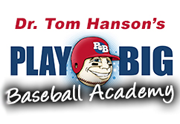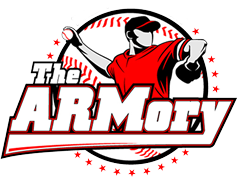Hope is Not a Plan: Why Pitcher Assessment is Critical
I HATE THE MALL!……….
Except for the frozen yogurt store.
When I make an annual trip to the mall (usually between December 21st and 23rd) to buy my wife a few Christmas presents, I usually have no clue what I’m doing.
Typically I wander around aimlessly in a mindless fog staring at clothing racks and jewelry counters.
After several hours, of inhaling perfumes, and lotions, I need a break.
I need some Froyo!
I usually recall from previous expeditions that there is a yogurt shop somewhere in this jungle, but I have no idea how to get there.
Like any good McGiver fan, I scan the mall for a directory. You know, that vertical edifice with a nearly indecipherable map on the side?
I find the location of the frozen delectable, but before I can chart my course I need one more piece of information. I need to know where I am.
Then I find it. It’s usually marked with a gold star or a giant arrow. It says:
YOU ARE HERE!!!!
This is where I must start! Once I know where I am the mission is nearly complete. I must simply execute my plan and its done.
And so it is when we train our pitchers.
To achieve success,we must first know where we are.
The assessment is THE most critical step.
In my opinion, it’s also the most neglected.
Every pitching coach in the country should have his entire pitching staff evaluated at least twice per year. But very few do it.
Why is that? Why is it that coaches rarely perform comprehensive evaluations on their pitchers?
Several reasons come to mind:
1) It takes time
Time is the enemy of every coach. Every season it seems there is too much to cover and not enough time to get it all done.
We all have the same amount of time. The key is to avoid things that waste time, and to only do things that give us the most return on training time.
I believe a proper assessment is actually a time saver. A truly objective assessment provides the template for training and helps us focus on the things we need the most. In the long run it saves time by ensuring we are only working on the areas where we can have the most impact.
2) It’s intimidating.
Coaches don’t feel qualified.
I agree. Conducting a physical assessment can be a daunting task to a person without a medical background.
I completely understand this fear.
That’s why I am here.
My blend of medical and baseball knowledge, makes me uniquely qualified to assess and correct any physical deficits and/or mechanical flaws that might be keeping a pitcher from reaching his full potential.
3) You can’t cookie cut it.
Pitcher assessments need to be done in a one on one or small group sessions. You can’t just heard them through and expect to do a good job.
Even though most body parts and types fall within certain normative values, each pitcher is an individual snowflake with a unique set of constraints and attributes.
4) It requires planning and organization.
To conduct an initial evaluation, you’ll definitely need to have a plan as to what you are going to assess and how you’re going to do it.
At the ARMory we have examined hundreds of possible performance factors. We have prioritized them all, trimmed them down, and found ways to quantify and measure each one. We have simplified an otherwise complex issue. We have a system.
5) It’s not exciting or sexy.
Nope. The evaluation process can be tedious.
There is no loud music or high energy whooping and shouting. There are no high fives or cheers.
There is a lot of observation and data collection. Its definitely not exciting in the traditional sense, but my students get a kick out of watching themselves on high speed video. True happiness appears at the end, when the plan surfaces.
6) It can be a perceived as negative experience.
No one likes to be criticized. But if you’re going to make progress as a pitcher, you’ll need to be completely dedicated to the truth.
Imagine this scenario:
You’re a 17 year-old junior in high school throwing 80 mph (well below the 88-90 necessary to land a D1 college scholarship). You come in for an evaluation hoping to find some opportunities for improvement.
After an hour and half of testing and observing I say, “Well it looks like you’re as athletic as you can be, and I can’t find any mechanical inefficiencies in your delivery. Basically, you’re about as good as you can possibly be.”
Do you know what you’d be?
You’d be screwed.
We used to call all our abnormal findings “possible constraints”.
Now we call them “significant opportunities”..because that’s exactly what they are.
When I look at a pitcher I am like a sculptor looking at a fresh rock. I can see the 90 mph dominator in there. All I need to do is carve off the excess, do a little reshaping, and the entire world will see what they’ve been missing.
Some may take longer to get there, but I truly believe everyone is capable of throwing a baseball 90 mph.
After the evaluation is complete and the plan begins to emerge, our players typically feel a great sense of hope and promise. There is joy and excitement in the fact that for the first time, they have a plan—a road map to success.
They know the way to the frozen yogurt store!
No, hope is not a plan.
But when you have a plan there is hope.
That’s what we are all about at The ARMory Power Pitching Academy.
We will be conducting assessments at the ARMory at 9:00 am on the following Saturdays:
April 6th
April 20th
May 4th
May 11thi
The cost will be $60 each.
We will cap it at 6 players per session, so don’t delay.
To schedule an appointment simply email me at randy@armorypitching.com or call me at 813-701-3290.
ALSO:
If you’re interested, I can come to your school or organization to assess your pitchers. Shoot me an email or give me a call and we can make arrangements.









Leave a Reply